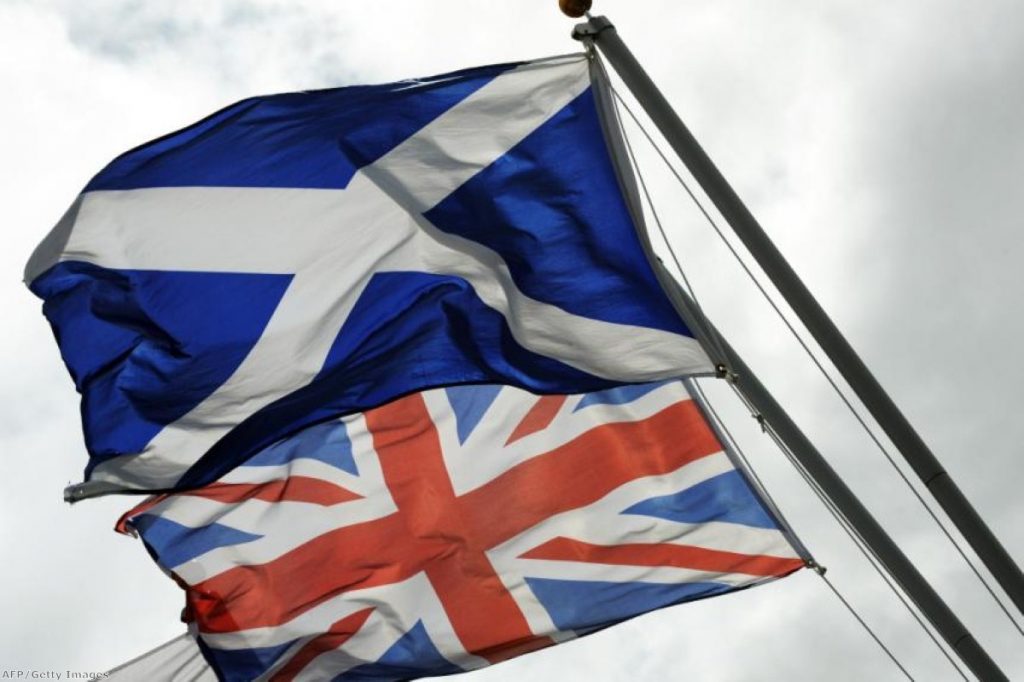Scottish devolution: Even the SNP are struggling to moan about this revolutionary package
The Smith Commission's package of devolution for Scotland announced today is revolutionary – making it very hard indeed for Scottish nationalists to insist the 'Vow' has not been kept.
The thoroughly awkward speech by deputy first minister John Swinney, responding to Lord Smith's announcements, has revealed the SNP is in an uncertain place right now.
The party is going along with the Smith Commission just enough for the Westminster leaders to trumpet the achievement of 'consensus'.
There is agreement about these powers – anything else might imperil their rapid implementation – but Swinney is trying to persist with gripes that undermine the unity sought by Labour, the Conservatives and Liberal Democrats.


Income tax is to be devolved, but control over national insurance contributions and desired tax incentives for research and development are being kept in London.
Holyrood will get the powers to run the benefits system for older people, carers and the disabled and can even create new benefits in devolved areas, but it won't get the chance to change welfare for in-work poverty.
Scotland is being given what Lord Smith described as "full powers over all programmes to help people back into work", but it does not get what the SNP calls "job-creating powers", nor control over the minimum wage.
"I regret these powers have not been delivered," Swinney said. But seconds later Iain Gray, Labour's leader in Scotland, declared: "This is a promise kept to the people of Scotland." Who is right? Have the promises which Alex Salmond has declared proved decisive in the 55-45 'No' vote on September 18th really been kept?
That depends – it's very much in the eye of the beholder.
One thing is clear: Gordon Brown's comments in the run-up to the referendum, in the heat and pressure of the campaign, do not quite match up to this package.
The former prime minister, as the SNP pointed out in their submission to the Smith Commission, promised "a modern form of Scottish Home Rule" and that there would be "as close to a federal state" as is possible in the UK.
It's clear the Smith Commission has not achieved that.
But it broadly tallies with the language of the Vow itself, when David Cameron, Ed Miliband and Nick Clegg agreed to deliver "extensive new powers" for Holyrood.
A Fantastic campaign by the @Daily_Record. 'The vow delivers'. pic.twitter.com/K0StWsvZDG
— Sam F (@Sam_F__) November 27, 2014
Nationalists will find a way to moan about it – to continue, as David Cameron put it in the Commons yesterday, their work of "division" in the UK.
That they are only doing so half-heartedly on this historic day is surprising for a political force that, until it achieves its ultimate aim of independence, will be remorselessly implacable in its demands for more, more, more.
The reason for that is obvious.
The Vow has been met in spirit. While Brown's hyperbole has given the nationalists a reason to persist in complaining, today's package really does mean change for Scotland on a massive scale.
Everyone knew this was coming – but seeing the full extent of new powers to be handed to Scotland in black and white for the first time is a dramatic moment.
The Scottish independence reference was a big deal, but it didn't actually change anything by itself. Until now.
These words from the Smith Commission are the end result of all the campaigning and all the debate.
It is real change. It is more than that: it is the latest big step in Britain's slow-burning, centuries-old revolution.
No wonder the SNP are finding it unusually hard to complain.

